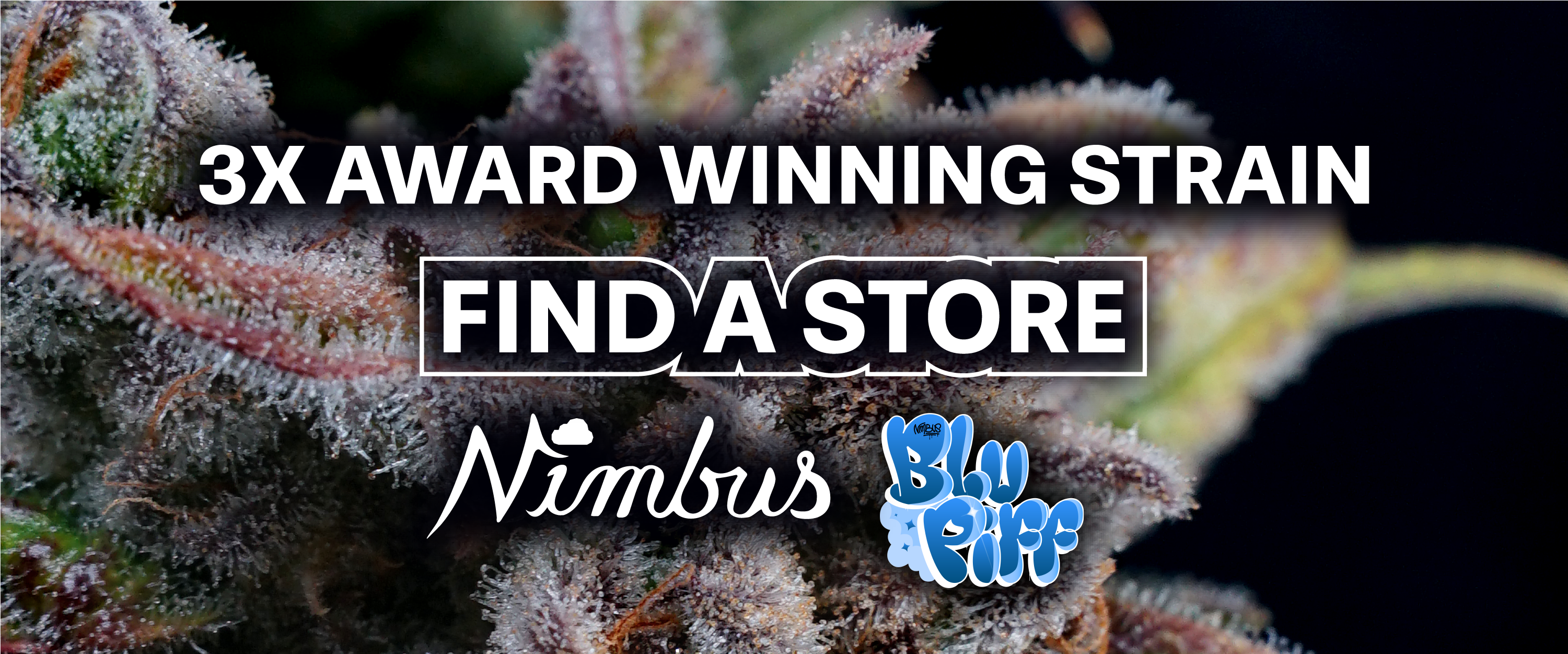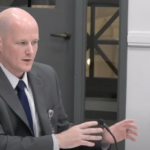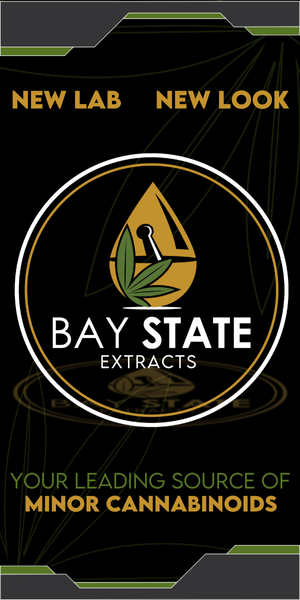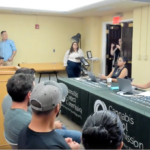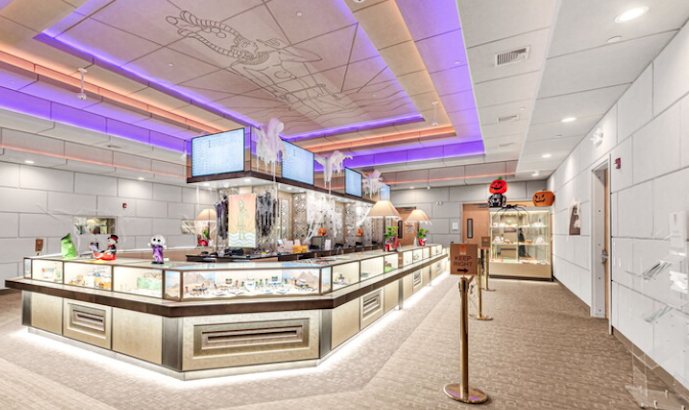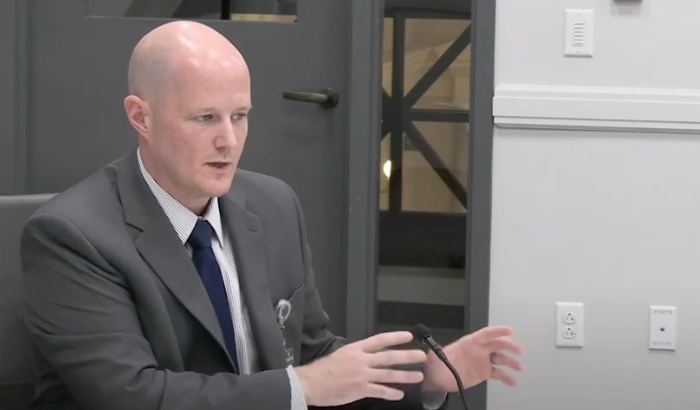
“Policies crafted with the best of intentions, burdened by lack of support and/or overly onerous restrictions, don’t yield the intended result.”
UPDATE: Less than 24 hours after the letter reprinted below was sent to the Cannabis Control Commission, commissioners voted to scrap the social consumption pilot program. You can read about that vote here, but also see below for a more detailed look at the background of this long-simmering issue.
As we have explained in our ongoing coverage of social cannabis consumption in Massachusetts over the past few months, an already slow-moving situation has also now become quite confusing.
At the last Cannabis Control Commission meeting earlier this month, with regulators having already formed a working group to evaluate the issue and help make plans to forge ahead, the future of a pilot program that gives priority to certain applicants came into question, with commissioners wondering out loud if the initiative should take place before, while, or after social consumption regulations are further defined.
Ahead of a followup CCC meeting this Monday, May 22, the group Equitable Opportunities Now (EON), which “educates for and empowers people of color to become active participants in the Massachusetts legal cannabis market,” published an open letter regarding the social consumption pilot in particular. As EON Policy Co-Chair Kevin Gilnack explained, “during their last public meeting, Commissioners Nurys Camargo and Bruce Stebbins, who lead the CCC’s Social Consumption Working Group, asked the full Commission to vote on a recommendation to set aside a non-functioning social consumption pilot program written into existing regulations as they craft new regulations to implement An Act Relative to Equity in the Cannabis Industry, which was signed into law last year.”
CCC members didn’t vote on the change, but before they make any decisions, EON is reminding them that the current “social consumption license type has an exclusivity period for Economic Empowerment applicants and Social Equity Program participants, which is already being hampered by the uncertainty created by the pilot program.” It’s all made for what Gilnack said is “an additional and unnecessary barrier to entrepreneurs from communities harmed by the war on drugs who are exploring opportunities with potential host communities.”
The letter below is reprinted via EON, and piggybacks the group’s April 29 comments regarding “Host Community Agreements, Municipal Equity, and Social Consumption Reforms.”
May 19, 2023
Cannabis Control Commission
Attn: Shawn Collins, Executive Director
RE: Social Consumption Pilot Program
Dear Chair O’Brien, Commissioner Camargo, Commissioner Concepcion, Commissioner Roy, and Commissioner Stebbins,
Thank you for your thoughtful initial discussion regarding how the Cannabis Control Commission’s (CCC’s) Social Consumption Working Group should proceed with respect to the existing pilot program.
This is an important issue worthy of thoughtful and deliberate consideration. It is critical that the CCC ensures that the Working Group has direction needed to craft draft comprehensive social consumption regulations in the short-term, and that the CCC ensures the long-term viability of a market that has the potential to meaningfully advance the agency’s mandate to “promote and encourage full participation in the regulated marijuana industry by people from communities that have previously been disproportionately harmed by marijuana prohibition and enforcement and to positively impact those communities.”
Background
The licensing of social consumption establishments has been embedded in Massachusetts’ adult use cannabis laws since voters approved Question 4, and to the CCC’s credit, the agency has worked within the purview of its legislative mandate to regulate this potential license type and educate the Legislature and the public about legislative changes needed to complete that process, as summarized in our previous public comment:
Social consumption has been a core component of Massachusetts cannabis law since the passage of Question 4, which authorized the CCC to: “…establish and provide for issuance of additional types or classes of licenses to operate marijuana-related businesses, including… licenses that authorize the consumption of marijuana or marijuana products on the premises where sold, licenses that authorize the consumption of marijuana at special events in limited areas and for a limited time…”
Despite the Legislature preserving this authority in its amendment to the law, municipalities were unable to authorize the licensing of such establishments in their communities until a technical fix, which was included in S3096, creating citizen petition and municipal legislative processes for authorizing the siting of that license type in their community.
To its credit, the CCC moved forward under its statutory authority and responsibility to develop regulations creating a social consumption pilot program based on the input of former Chairman Steven J. Hoffman and former Commissioner Shaleen Title, “as well as local administrators, councilors, health and human service officials, and a municipal planner reviewed policies in other states as well as feedback from the Cannabis Advisory Board, the Massachusetts Municipal Association, and Commission staff.”
As several Commissioners noted during the Commission’s last public meeting, the CCC, the Legislature, municipalities, and the industry are in a vastly different position now than when the Commission began working on the current social consumption program pilot program – and it is important to understand our current environment and the context and motivations for that work between 2017-2019.
On November 9, 2017, the Massachusetts Cannabis Advisory Board Cannabis Industry Subcommittee published initial comprehensive social consumption recommendations, marking an important milestone in the CCC’s deliberative, inclusive policy development process. The document outlines detailed social consumption policy recommendations, including a three-tiered licensing system for new an onsite “consumption retailer licenses similar to an alcohol bar establishment where only limited servings of cannabis can be purchased and must be used by consumers onsite,” “existing package store style cannabis retailers having an onsite permit for consumption,” and “retailers that interact with other state agencies and professional licensure boards,” and suggests that “short term event permits issued by municipalities for onsite consumption should also be similar to a one day event alcohol consumption permit given by a municipality.”
By March 2018, the CCC decided to “…hold off on social consumption in public establishments came following an outcry from Gov. Charlie Baker, Attorney General Maura Healey and many members of the state Legislature. The Commission initially said they would issue licenses to businesses where patrons would be allowed to consume cannabis on-premises. There would have been two types of licenses: a primary license, in which more than 50 percent of the business’ revenues would come from the sale of cannabis; and a mixed-use license, in which places like restaurants, theaters and yoga studios would allow patrons to purchase cannabis products to be consumed during another activity, such as dining, watching a movie or taking a yoga class.
In February 2018, then-Governor Charlie Baker referred to social consumption regulatory efforts as a “gigantic lift,” saying “that if they try to unwrap the entire package straight out of the gate, the role and responsibility they have as an overseer and as a regulator is going to be compromised.” He also expressed worry about “creating a situation and a dynamic — given the relatively early stages for the commission generally and for this industry in particular — to get off on the wrong foot straight out of the gate.”
That political backdrop and Secretary of the Commonwealth William Galvin’s determination that further legislative action was needed to create a mechanism for municipalities to authorize social consumption, clearly informed the CCC Social Consumption Working Group’s May 2019 recommendation to start with a pilot program.
The Social Consumption Working Group Recommendations, in addition to being released via press release, takes pains to stress that “no part of this program will be able to move forward unless a legislative change is made to allow municipalities to permit on-site consumption” in its second sentence, and later:
“Marijuana establishments are licensed by the Commission. Under G. L. c. 94G, § 4(b)(1), the Commission has the authority to license ‘the consumption of marijuana or marijuana products on the premises where sold.’ G. L. c. 94G, § 3(b) outlines a process for voters in a city or town to authorize ‘the sale of marijuana and marijuana products for consumption on the premises where sold.’
However, as interpreted by the Secretary of the Commonwealth, G. L. c. 94G, § 3(b) does not provide a mechanism for that process. Fortunately, multiple bills such as H3541 and S1125 have been filed to correct this issue and allow cities and towns to permit marijuana establishments to allow on-site consumption. This pilot program will only be able to move forward if one of those bills passes.” [emphasis *not* added]
This pilot program fulfilled a CCC power granted by voters and the Legislature to “establish and provide for issuance” of social consumption licenses, demonstrated a mechanism by which municipalities could opt-in to allowing such establishments, addressed concerns raised by powerful external political actors and educated the public and the Legislature about the need for further legislative action.
Legislative Intent
In addition to facing opposition to a comprehensive onsite consumption licensing framework from appointing authorities, the CCC also heard concerns raised by then-House Speaker Robert DeLeo: “I feel that we’re probably going a little bit quicker than I would like to see in terms of these other issues coming up whether they be selling door to door delivery, whether they be cafes or whatnot… I want to make sure that we have the basics done relative to seed to sale before we proceed further and we can at least get that process done.”
In the intervening two two-year legislative sessions during which legislators developed and passed “An Act Relative to Equity in the Cannabis Industry,” addressing legal issues regarding the licensing of social consumption, legislators were aware of the CCC’s pilot program and had the opportunity to either require (“shall”) or give the option (“may”) that the CCC rollout social consumption through a pilot program, yet chose not to.
In addition to declining the opportunity to update the law regarding CCC licensing of social consumption to encourage or require a pilot program, the Legislature, in exempting social consumption establishments from the Commonwealth’s public smoking laws, expressly defines the businesses as “licensed by the [CCC]… for sale of marijuana and marijuana products for consumption on the premises pursuant to regulations promulgated pursuant to section 4 of chapter 94G; and (ii) authorized to allow social consumption of cannabis on the premises, where required, by the appropriate authority in the city or town in which the establishment is located…” [emphasis added]. This language further reflects the Legislature’s deference to the CCC to appropriately regulate this license type.
For the past six and a half years, the CCC has derived its authority to regulate and license social consumption from the same section authorizing the licensing of “limited cultivation, processing, manufacture, possession or storage of marijuana or marijuana products, limited delivery… and licenses intended to facilitate scientific research or education.”
Appropriately, the next section of the law charges that the CCC shall not “prohibit the operation of a marijuana establishment either expressly or through regulations that make operation of a marijuana establishment unreasonably impracticable” [emphasis added], which may be part of the reason we have not seen a pilot program proposed for licenses related to cultivation, processing, possession, storage, delivery, research, and/or education related to cannabis.
In passing S3096, the Legislature’s only clearly intended social consumption policy changes include:
- Creating a system by which municipal legislative leaders and/or citizens can authorize social consumption so that municipalities can opt-in.
- Exempting social consumption from indoor smoking laws so that the CCC can create regulations that allow indoor combustion.
Given that municipal leaders and citizen petitioners now have a mechanism by which they can authorize social consumption in their community, any additional CCC process for selecting social consumption host communities as contemplated in the pilot program would merely create additional burdens to those communities and the potential applicants seeking to work in them while providing no observable benefit to public health or safety.
Legislative leaders, then-Gov. Charlie Baker, and then-Attorney General Maura Healey all had an opportunity to make their desire for the pilot program to be preserved or codified during the debate and signing of this law and chose not to, and we hope the CCC in its wisdom will also choose to move forward, learning from – but not bound by – the work of previous commissioners.
Pilot Program Challenges
Remarks by Commissioners about recent public hearings regarding standards lab and delivery licensing have highlighted how policies crafted with the best of intentions, burdened by lack of support and/or overly onerous restrictions, don’t yield the intended result.
Creating a Standards Lab license without a plan for how existing commercial, academic, or state labs would participate in this line of business has yielded a lack of applicants for that license. Imposing a cost-prohibitive and unjustified two-driver rule has stifled a market set aside specifically for disparately harmed communities. These types of decisions reflect the potential harm that can result when the CCC fails to strike the correct balance between considerations for health and safety and considerations for social justice, equitable market participation, and the viability of businesses started by people from disparately harmed communities.
The current pilot program creates significant and unnecessary uncertainty for potential license applicants and potential host communities. By artificially limiting the number of communities that could potentially host a social consumption establishment and empowering the CCC to pick winners and losers, the Commission will unknowingly prevent potential local business operators from disparately harmed communities from exploring the opportunity and discourage potential host communities from working with interested operators.
This is a dynamic and ever-changing industry where important decisions and relationships happen at the local level between applicants/licensees and municipal officials, and while both parties are significantly better informed and more experienced than they were in 2019, preserving the unnecessary and unduly burdensome requirement that communities apply to the CCC themselves – in addition to the licensing applicant – will create a huge barrier for both the applicant and the city or town.
Nowhere in the CCC’s authorizing language is the agency empowered to decide which municipalities have the right to authorize operators to seek a social consumption license in their community – nor does the CCC do so for any other license type – and creating an artificial limit of 12 communities will unnecessarily interfere with efforts by civic groups, business operators, and municipal leaders to determine the best fit for their communities.
Cannabis business operators, potential cannabis business operators, and local officials are already forced to grapple with significant regulatory, legal, cultural, community, and financial challenges in determining what types of establishments to license in which communities, and we hope the Commission will move forward by removing this barrier.
Moving Forward
According to a CCC press release soliciting public input, the Social Consumption Working Group “is tasked with reviewing the Commission’s existing social consumption regulations to consider whether any new regulations or amendments to the existing regulations are needed to move the Social Consumption Marijuana Establishment license forward in Massachusetts” [emphasis added].
Therefore, we urge the CCC to take the first step in moving forward by acknowledging that new regulations, not amendments to the existing regulations, are needed. There are many components of the CCC’s May 2019 pilot decision, CCC staff’s October, 2018 research memo, and the Massachusetts Cannabis Advisory Board November, 2017 recommendations that are worth of consideration; however, there is not value in requiring the current CCC Social Consumption Working Group to continue to shape the future of social consumption within the pilot program framework.
Then-Attorney General Maura Healey said in February 2018 that while “there may be a time to consider the introduction of social consumption marijuana establishments, mixed-use social consumption establishments, and delivery-only retail sales, we believe it should not be in the initial months of implementation.”
After more than five years and a significant new cannabis law addressing social consumption, now is the time to move forward with a comprehensive, equitable, safe, and healthy onsite consumption licensing and regulatory framework.
Conclusion
The CCC has many important decisions to address in creating an equitable, safe, healthy, and prosperous social consumption regulatory framework and has a significant opportunity to create a market in which those most harmed by the war on drugs can thrive.
The Commission and the public will have big discussions about the Legislature’s decision to authorize indoor smoking and the conflicting previous recommendations between the MCAB and the CCC, as well as new information that has emerged over the past 5 years.
The commission will have to grapple with how many and what kinds of social consumption licenses to create, from one-day and short-term event licenses to cafes and bakeries within new and/or existing establishments, to outdoor patios, to indoor smoking lounges – and likely others arise from public input.
For each type of license, it is critical that the CCC and its Social Consumption Working Group have the opportunity to develop regulatory recommendations that promote health, safety, and social justice without being limited to the previous pilot program framework.
We strongly urge the CCC to set aside the social consumption pilot program in the interest of avoiding overly burdensome regulations, removing artificial and unnecessary barriers, respecting local control, advancing the CCC’s licensing prerogative, and providing clarity to potential entrepreneurs from disparately harmed communities and their potential host communities.
In the unfortunate event this body believes that some form of pilot is necessary, we urge you to limit licensees, not municipalities, through your selection process; ensure the pilot is comprehensively varied in the social consumption license types it offers; encourage robust participation; and extend the start of the exclusivity period countdown to commence only after the pilot program concludes. It is critical that equity businesses receive a substantial period of exclusivity beyond any pilot.
Thank you for your consideration. Please don’t hesitate to contact Equitable Opportunities Now Co-Founder Shanel Lindsay at shanel@masseon.com with any questions.
Best Regards,
Shanel Lindsay, Co-Founder, Equitable Opportunities Now
Kevin Gilnack, Public Policy Co-Chair, Equitable Opportunities Now
Armani White, Public Policy Co-Chair, Equitable Opportunities Now


